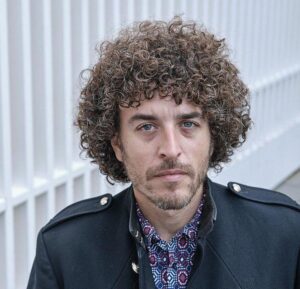Introduction
Today disinformation and misinformation proliferate across social media platforms and some media outlets. In a world where it can be difficult to know what is true, the role of experts has never been more crucial. Experts, with their deep knowledge and rigorous training, serve as beacons of truth, guiding the public through the fog of false and extremist narratives. Their insights and evidence-based perspectives help to counteract misleading narratives, ensuring that accurate and reliable information is presented.
In recent weeks, media outlets across Europe, and beyond, have reached out to members of the ARENAS consortium for the expert opinion on the unprecedented events we have seen unfold. Once again this reflects the breadth and depth of expertise within the ARENAS consortium, and how that expertise is respected. Below is a selection of the contributions made by consortium members.
 Julien Longhi is Professor of Discourse Analysis and Digital Humanities at Cergy Paris Université. Julien specialises in political discourse analysis and digital humanities applied to social networks. He is the overall coordinator of the ARENAS project and leader of WP1, which is responsible for coordination and project management. He has recently contributed to Franceinfo and LaCroix on the impact of word choice on narratives, and the connotations certain expressions can have on discourse.
Julien Longhi is Professor of Discourse Analysis and Digital Humanities at Cergy Paris Université. Julien specialises in political discourse analysis and digital humanities applied to social networks. He is the overall coordinator of the ARENAS project and leader of WP1, which is responsible for coordination and project management. He has recently contributed to Franceinfo and LaCroix on the impact of word choice on narratives, and the connotations certain expressions can have on discourse.
 Steven Forti is an Associate Professor at the Faculty of Arts and Humanities, Department of Modern and Contemporary History at Universitat Autonoma de Barcelona. Steven is the leader of Work Package 3 in the ARENAS project which examines the circulation of extremist narratives. As a historian focusing on fascism, nationalism and the extreme right in twentieth and twenty-first centuries, he leads the work on Task 3.2, examining the historical roots of extremist narratives in European contexts. He is a frequent contributor to media in Spain, France, Italy and South America. Recently he participated in a television interview on France 24 on the de-democratisation we are currently witnessing for the first time in a century, and an interview with ATP (France) published in Spain by RFI following the recent show of force in Madrid, by Europe’s biggest far-right bloc. Steven was also interviewed by Radio Nacional de España, regarding recent political events in Germany and the activities of far-right parties in other European countries and Bulgarian National Television on what role the tech billionaires are likely to play in the new American presidency. His opinion is also valued outside of the EU where he has recently been interviewed by the Swiss newspaper, Le Temps, on the links between the far-right in Europe and Trumpist America. A further interview with El Comercio newspaper in Peru, considered how the US has turned away from Europe.
Steven Forti is an Associate Professor at the Faculty of Arts and Humanities, Department of Modern and Contemporary History at Universitat Autonoma de Barcelona. Steven is the leader of Work Package 3 in the ARENAS project which examines the circulation of extremist narratives. As a historian focusing on fascism, nationalism and the extreme right in twentieth and twenty-first centuries, he leads the work on Task 3.2, examining the historical roots of extremist narratives in European contexts. He is a frequent contributor to media in Spain, France, Italy and South America. Recently he participated in a television interview on France 24 on the de-democratisation we are currently witnessing for the first time in a century, and an interview with ATP (France) published in Spain by RFI following the recent show of force in Madrid, by Europe’s biggest far-right bloc. Steven was also interviewed by Radio Nacional de España, regarding recent political events in Germany and the activities of far-right parties in other European countries and Bulgarian National Television on what role the tech billionaires are likely to play in the new American presidency. His opinion is also valued outside of the EU where he has recently been interviewed by the Swiss newspaper, Le Temps, on the links between the far-right in Europe and Trumpist America. A further interview with El Comercio newspaper in Peru, considered how the US has turned away from Europe.
 Katalin Miklóssy is a Finnish political scientist specialising in Eastern European studies. She has developed a distinguished academic career focusing on political history and the dynamics of authoritarian regimes, particularly in East-Central and Southeastern Europe. Katalin Miklóssy serves as the Leader of Work Package 6 (WP6) in the ARENAS project. As Leader of Work Package 6, Katalin co-ordinates research on Ethics, Norms and Politically Sensitive Science. The target areas under consideration by Katalin for ARENAS are Finland and Hungary. Additionally, she contributes to other aspects of the ARENA’S project, including tasks within Work Package 3, which investigates the circulation of extremist narratives across various domains. Her expertise in political and legal history, particularly concerning the rule of law and its connections to nationalist and conservative narratives, informs her contributions to the project. Through her leadership in WP6 and collaboration across other work packages, Miklóssy plays a pivotal role in advancing the project’s objectives to understand and counteract extremist narratives in Europe. Katalin interviewed Aliisa Ristmeri on the Finnish programme Steak about the exceptional situation in Romania regarding presidential elections. There is a link to listen back, and also an outline of the interview here. Katalin was also interviewed by Verkkouutuset in Finland on the events that included Russian hackers breaking into the IT systems of the Hungarian Ministry of Defence and gaining access to sensitive information about both Hungary and other NATO member states, and whether or not Hungary is still a reliable NATO country, which you can read here. In a further interview with Verkkouutuset, Katalin addressed the Tik Tok campaign that was orchestrated by Russia to influence the recent Romanian elections.
Katalin Miklóssy is a Finnish political scientist specialising in Eastern European studies. She has developed a distinguished academic career focusing on political history and the dynamics of authoritarian regimes, particularly in East-Central and Southeastern Europe. Katalin Miklóssy serves as the Leader of Work Package 6 (WP6) in the ARENAS project. As Leader of Work Package 6, Katalin co-ordinates research on Ethics, Norms and Politically Sensitive Science. The target areas under consideration by Katalin for ARENAS are Finland and Hungary. Additionally, she contributes to other aspects of the ARENA’S project, including tasks within Work Package 3, which investigates the circulation of extremist narratives across various domains. Her expertise in political and legal history, particularly concerning the rule of law and its connections to nationalist and conservative narratives, informs her contributions to the project. Through her leadership in WP6 and collaboration across other work packages, Miklóssy plays a pivotal role in advancing the project’s objectives to understand and counteract extremist narratives in Europe. Katalin interviewed Aliisa Ristmeri on the Finnish programme Steak about the exceptional situation in Romania regarding presidential elections. There is a link to listen back, and also an outline of the interview here. Katalin was also interviewed by Verkkouutuset in Finland on the events that included Russian hackers breaking into the IT systems of the Hungarian Ministry of Defence and gaining access to sensitive information about both Hungary and other NATO member states, and whether or not Hungary is still a reliable NATO country, which you can read here. In a further interview with Verkkouutuset, Katalin addressed the Tik Tok campaign that was orchestrated by Russia to influence the recent Romanian elections.
By turning to experts, and learning from them, we can navigate the complexities of today’s information landscape with greater confidence and clarity, fostering a more informed and discerning society. The expertise and opinions of the experts working on ARENAS are respected across the world. Their work underpins the quality and the integrity of the ARENAS project and the results we are publishing.
